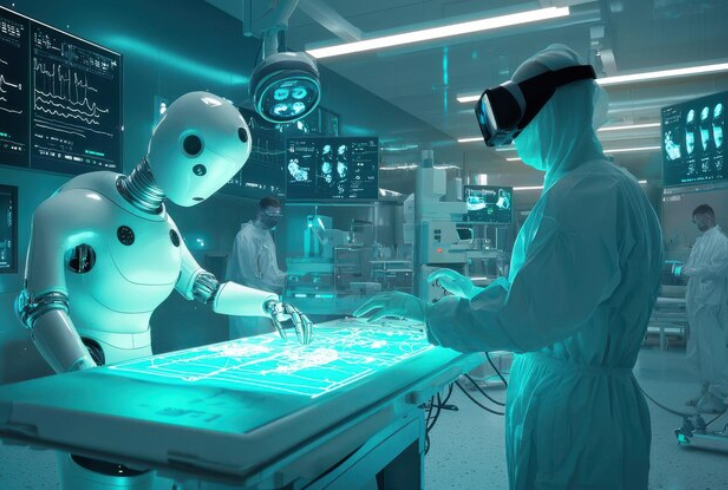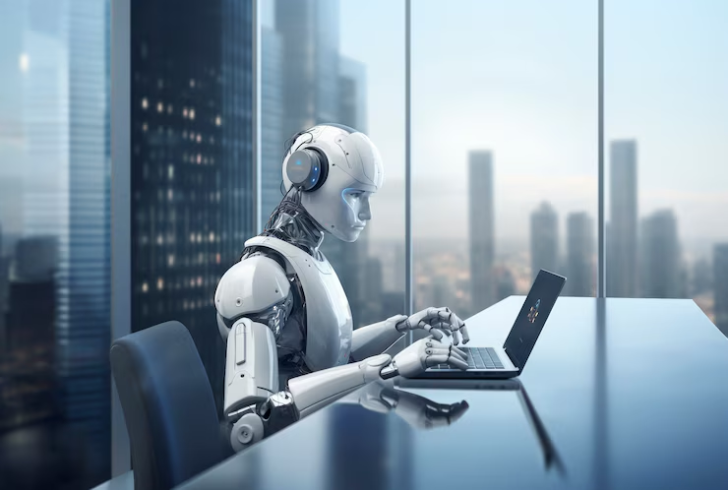In today's rapidly evolving technological landscape, artificial intelligence (AI) and automation are at the forefront of a global revolution. These cutting-edge advancements are reshaping industries, transforming daily life, and pushing the boundaries of what's possible. From healthcare to finance, manufacturing to retail, AI and automation are leaving an indelible mark on our society, economy, and future prospects.
The AI Revolution in Healthcare

Freepik | keetazalay | AI is revolutionizing healthcare with faster, more accurate diagnoses and drug discovery advancements.
One of the most significant impacts of AI and automation can be seen in the healthcare sector. Advanced algorithms are now capable of analyzing medical images with incredible accuracy, often surpassing human capabilities. This breakthrough has led to earlier detection of diseases and more precise diagnoses, ultimately saving lives.
- AI-powered image analysis for X-rays and MRIs
- Faster and more accurate disease detection
- Improved patient outcomes through early intervention
Beyond diagnostics, AI is accelerating drug discovery processes. By simulating molecular interactions and predicting compound efficacy, researchers can develop new medications more quickly and cost-effectively than ever before.
Transforming Financial Services
The financial industry has also experienced a seismic shift due to AI and automation. These technologies have revolutionized fraud detection, risk assessment, and personalized financial advice.
Robo-advisors, powered by sophisticated AI algorithms, are making investment strategies more accessible to the average person. These digital platforms analyze market trends, assess risk tolerance, and create tailored investment portfolios, democratizing financial planning for millions.
AI and Automation in Our Daily Lives
From virtual assistants to smart home devices, AI and automation have become integral parts of our everyday routines. Voice-activated assistants like Siri and Alexa can control home appliances, answer questions, and even make purchases, streamlining daily tasks and enhancing convenience.
In the retail sector, AI-driven recommendation systems have transformed the shopping experience. By analyzing past purchases and browsing history, these systems can suggest products tailored to individual preferences, increasing customer satisfaction and boosting sales.
The Future of Manufacturing
Smart factories represent the next frontier in industrial production. By integrating AI, robotics, and the Internet of Things (IoT), these advanced facilities are revolutionizing manufacturing processes.
- Real-time monitoring of production lines
- Predictive maintenance to prevent equipment failures
- Adaptive manufacturing for rapid response to market changes
This synergy of AI and automation in manufacturing leads to increased efficiency, reduced downtime, and lower production costs. As a result, industries can respond more quickly to changing consumer demands and market conditions.
Challenges and Considerations

Image by freepik | AI is experiencing rapid growth, transforming industries and driving significant technological advancements globally.
While the benefits of AI and automation are undeniable, their rapid advancement also raises important questions and challenges. As these technologies continue to evolve, society must grapple with issues such as job displacement, data privacy, and ethical considerations in AI decision-making.
It's crucial for policymakers, industry leaders, and the public to engage in ongoing dialogue about the responsible development and implementation of AI and automation. By addressing these challenges proactively, we can harness the full potential of these technologies while mitigating potential negative impacts.
Looking Ahead
The integration of AI and automation across various sectors is just the beginning. As these technologies continue to advance, we can expect even more groundbreaking innovations that will further enhance our ability to solve complex problems and improve quality of life.
From personalized medicine to sustainable energy solutions, the possibilities are virtually limitless. By embracing the potential of AI and automation while addressing the associated challenges, we can create a future that is more efficient, innovative, and equitable for all.

